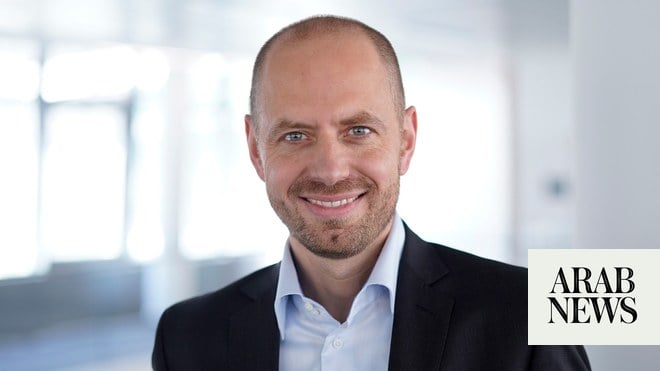
Technology to play key role as Kingdom seeks faster route to targets
Khalid Abuleif says his country is investing heavily to make these technologies ready sooner
SHARM EL-SHEIKH, Egypt: Saudi Arabia is on track to meet its net-zero pledge by 2060, even though the global technologies have not fully “matured” yet, the Kingdom’s chief climate change negotiator said.
“We are really in a great situation where Saudi Arabia could really move forward, not only to meet the short-term goals of 2030, but also to meet the 2060 goals,” Khalid Abuleif told Arab News. “But we could do that better and earlier if the technologies are matured earlier than they’re supposed to be.”
Abuleif said the Kingdom would be able to fulfil its pledges earlier and meet its 2060 targets if carbon capture and storage, direct air and removal technologies are fully available sooner.
“Saudi Arabia is investing heavily to make these technologies ready earlier, through two major initiatives,” Abuleif added, citing the Saudi Green Initiative and the Middle East Green Initiative, which were launched by Crown Prince Mohammed bin Salman last year.
He said that studies and reports issued by the Climate Change Impacts Studies Database show that most of these technologies will mature around 2040, “and hopefully we are having these technologies coming earlier.”
He said: “We have so many programs, almost 60 initiatives under that that would really help us move this forward, not only in meeting our obligations, but also making sure that most of these technologies are expedited and hopefully they would be commercially viable by the time we complete them.”
Abuleif, who is also the sustainability adviser to the minister of energy, was speaking on the sidelines of the UN Climate Change Conference (COP27), which kicked off on Nov. 6 in the Egyptian resort city of Sharm El-Sheikh, where delegates on Saturday were finalizing a draft agreement.
He said that during the Kingdom’s hosting of the G20 presidency two years ago, the country demonstrated “the clarity and the approach” of how it will address the goals of the Paris Agreement on climate change.
The Kingdom has a clear ambition to double the nationally determined contribution as part of its 2030 goals, he said, adding that in “2015 our NDC was 130 metric tons, and then only last year, before we got to Glasgow (COP26), we have upgraded that NDC to more than double, which is 278 metric tons of carbon, (and) this represents almost 40 percent of our 2019 emissions.”
Abuleif said: “This year we came back and we also shared with everybody what we have done last year, and what we are going to do next year as some kind of accountability on our side, to show the world that we are really serious and we are moving on the ground; we’re not talking, we are walking the talk.”
Saudi Arabia hosted the second editions of the Saudi and Middle East Green Initiative summits on the sidelines of COP27, which also included a separate pavilion showcasing over 60 programs and schemes that the Kingdom has launched and implemented to promote circular carbon economy, afforestation, wildlife rehabilitation, and sustainability.
“On the sustainability side, the beauty of the circular carbon economy approach is that it is a very inclusive approach. It has everything in it, it has renewable as a priority, and this is the reduced component, it has the abatement component where, from a point source, we collect and reuse, recycle or remove the emissions so that it does not go to the atmosphere.
“And then what’s even more important, if there are any inefficiencies in the system, we can always remove CO2 from the atmosphere through two major efforts; one is the technical nature with direct air capture, and Saudi Arabia is piloting and working on the R&D in that direction.”
Saudi Arabia has already taken “bold goals” with regard to deforestation and vegetation cover, including the SGI plan to plant 10 billion trees by 2030 and the MGI plan to plant 40 billion trees, as well as protecting more than 30 percent of Kingdom’s land and sea, biodiversity, and enhancing green cover.
“If it wasn’t for the region that we have, renewables wouldn’t be as low cost as they are today. So I really think that this region, which is the GCC region, was the region that has made that a reality in really bringing the prices of electricity from renewable that low,” he said.












